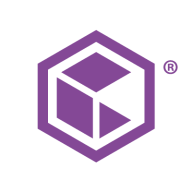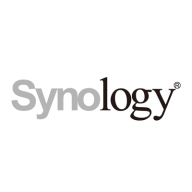

Commvault Cloud and Synology DSM are robust data management solutions. Synology DSM has the upper hand due to its competitive pricing and superior support.
Features: Commvault Cloud offers comprehensive data protection, efficient disaster recovery, and extensive integration capabilities. Synology DSM is praised for its high-performance NAS capabilities, ease of use, and sophisticated storage management.
Room for Improvement: Users of Commvault Cloud highlight the need for a more intuitive interface, faster support response times, and improved user experience. Synology DSM users wish for better third-party integrations, more advanced security features, and scalability options.
Ease of Deployment and Customer Service: Commvault Cloud’s deployment model is robust with strong customer service, but users find the initial setup complex. Synology DSM has a simpler deployment process and responsive support, resulting in higher user satisfaction despite some technical constraints.
Pricing and ROI: Commvault Cloud's setup costs are higher, with a longer ROI period, but justify the investment with robust capabilities. Synology DSM offers competitive pricing, with a quicker ROI and substantial value for its cost.
| Product | Market Share (%) |
|---|---|
| Commvault Cloud | 3.9% |
| Synology DSM | 1.4% |
| Other | 94.7% |


| Company Size | Count |
|---|---|
| Small Business | 57 |
| Midsize Enterprise | 24 |
| Large Enterprise | 82 |
| Company Size | Count |
|---|---|
| Small Business | 8 |
| Midsize Enterprise | 4 |
| Large Enterprise | 1 |
Commvault Cloud is the ultimate cyber resilience platform built to meet the demands of the hybrid
enterprise. Beyond its core functionality of data backup and recovery across diverse workloads, including applications, databases, virtual machines, and files, Commvault Cloud stands out as a robust defense against ransomware. Going beyond backup, the platform integrates advanced data security features such as encryption, access control, and threat detection, safeguarding against unauthorized access and cyber threats.
With tools for data management, classification, and migration, businesses can optimize storage costs, enhance accessibility, and comply with regulations seamlessly. Boasting cloud integration with major providers like AWS, Azure, and Google Cloud, Commvault Cloud leverages the scalability and flexibility of the cloud for comprehensive data protection and management. The platform's automation capabilities streamline tasks, and its reporting and analytics features provide valuable insights into data usage, potential risks, and optimization strategies. Commvault Cloud is not just a security tool; it is a key component of cyber resilience, enabling organizations to not only protect against cyberattacks but also recover swiftly and minimize the impact of incidents. Elevate your cyber resilience strategy with Commvault Cloud.
We monitor all Backup and Recovery reviews to prevent fraudulent reviews and keep review quality high. We do not post reviews by company employees or direct competitors. We validate each review for authenticity via cross-reference with LinkedIn, and personal follow-up with the reviewer when necessary.